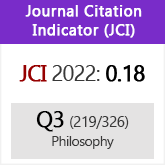Another Universalism: On the unity and diversity of Human Rights
DOI:
https://doi.org/10.3989/isegoria.2008.i39.627Keywords:
universalism, human rights, law of peoples, right to have rights, democracy, Arendt, Husserl, Dworkin, Nussbaum, Rawls and WalzerAbstract
The spread of human rights, as well as their defense and institutionalization, have become the uncontested language, though not the reality, of global politics. This lecture poses the question of universalism in the cultural, metaphysical, moral and legal senses with reference to the contemporary debate on human rights. I argue that there is one fundamental moral right, the «right to have rights» (Hannah Arendt) of every human being to be recognized by others, and to recognize others in turn, as a person entitled to moral respect and to legally protected rights in a human community. Human rights articulate moral principles protecting the communicative freedom of individuals. Such moral principles are distinct from the legal positivization and specification of rights; nevertheless there is a necessary and not merely contingent connection between human rights as moral principles and their legal form. The unity and diversity of human rights can be defended only on the basis of a commitment to democratic forms of government, a free civil society and public sphere. «Another universalism » suggests that learning processes and conversations as well as confrontation on the extent and justification of human rights are not global exchanges.
Downloads
Download data is not yet available.
Downloads
Published
2008-12-30
How to Cite
Benhabib, S. (2008). Another Universalism: On the unity and diversity of Human Rights. Isegoría, (39), 175–203. https://doi.org/10.3989/isegoria.2008.i39.627
Issue
Section
Articles
License
Copyright (c) 2008 Consejo Superior de Investigaciones Científicas (CSIC)

This work is licensed under a Creative Commons Attribution 4.0 International License.
© CSIC. Manuscripts published in both the printed and online versions of this Journal are the property of Consejo Superior de Investigaciones Científicas, and quoting this source is a requirement for any partial or full reproduction.All contents of this electronic edition, except where otherwise noted, are distributed under a “Creative Commons Attribution 4.0 International” (CC BY 4.0) License. You may read here the basic information and the legal text of the license. The indication of the CC BY 4.0 License must be expressly stated in this way when necessary.
Self-archiving in repositories, personal webpages or similar, of any version other than the published by the Editor, is not allowed.














